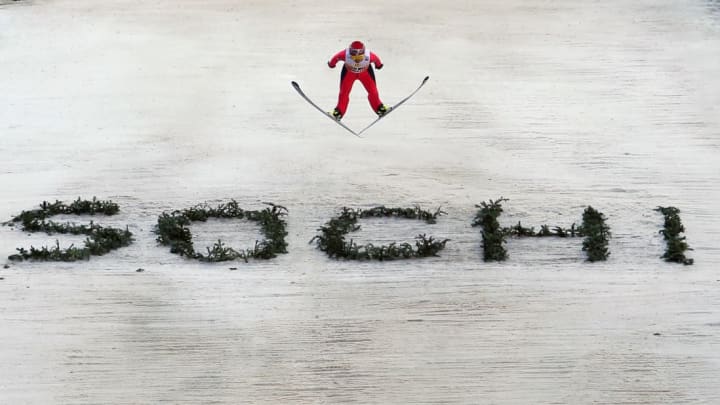So-shee? Sah-chee? So-chee? Before Sochi was selected as the host of the 2014 winter Olympics, not many people had heard of it, so it didn't have a widely known English pronunciation. Luckily, the sounds in the Russian version have pretty straightforward counterparts in English. The word doesn't have any of the features that make Russian especially tricky for English speakers—it's not Nazyvayevsk, or Srednekolymsk, or Zheleznodorozhny. Still, there has been a little uncertainty about how we should say Sochi.
The 'ch' gives pause because while we generally pronounce it as in "cheer," we know that in foreign words it sometimes has a 'sh' pronunciation, as in "chalet" or "chic," or a back of the throat pronunciation, as in "Bach" or "chutzpah." Not to worry though. The Russian 'ch' (the Latin alphabet transcription of ч) is like the English 'ch.' (The confusion about which foreign 'ch' should be used also leads people to mispronounce "dacha" with the back of the throat sound instead of the English 'ch.')
The 's' is pretty much equivalent to English and the 'i' is basically the 'ee' sound of our spelling of foreign words like "sushi" and "spaghetti"; the 'o' sound, however, is where the equivalencies don't hold up so well, resulting in further confusion. The Russian 'o' is somewhere between the 'o' we use in "note" and the vowel we use in "caught." (If your dialect has the cot-caught merger, it's further yet from the Russian version.) When the 'o' is in an unstressed syllable, it sounds like 'ah.'
Here is the pronunciation of the stressed Russian 'o':
And here is a Russian speaker saying "Sochi."
The English version has to pull the 'o' one way (So-chee) or the other (Saw-chee or Sah-chee). For Russian words in English, we sometimes go one way (Olga) and sometimes the other (Vodka). So what to do for Sochi? It seems that the more we talk about it, the more So-chee gains momentum in the U.S. However Saw-chee may be picking up support in the UK. It wouldn't be the first time we parted ways on an 'o' sound in a borrowed word. Over there, the 'o' in cognac and yoghurt is also closer to 'aw.'
